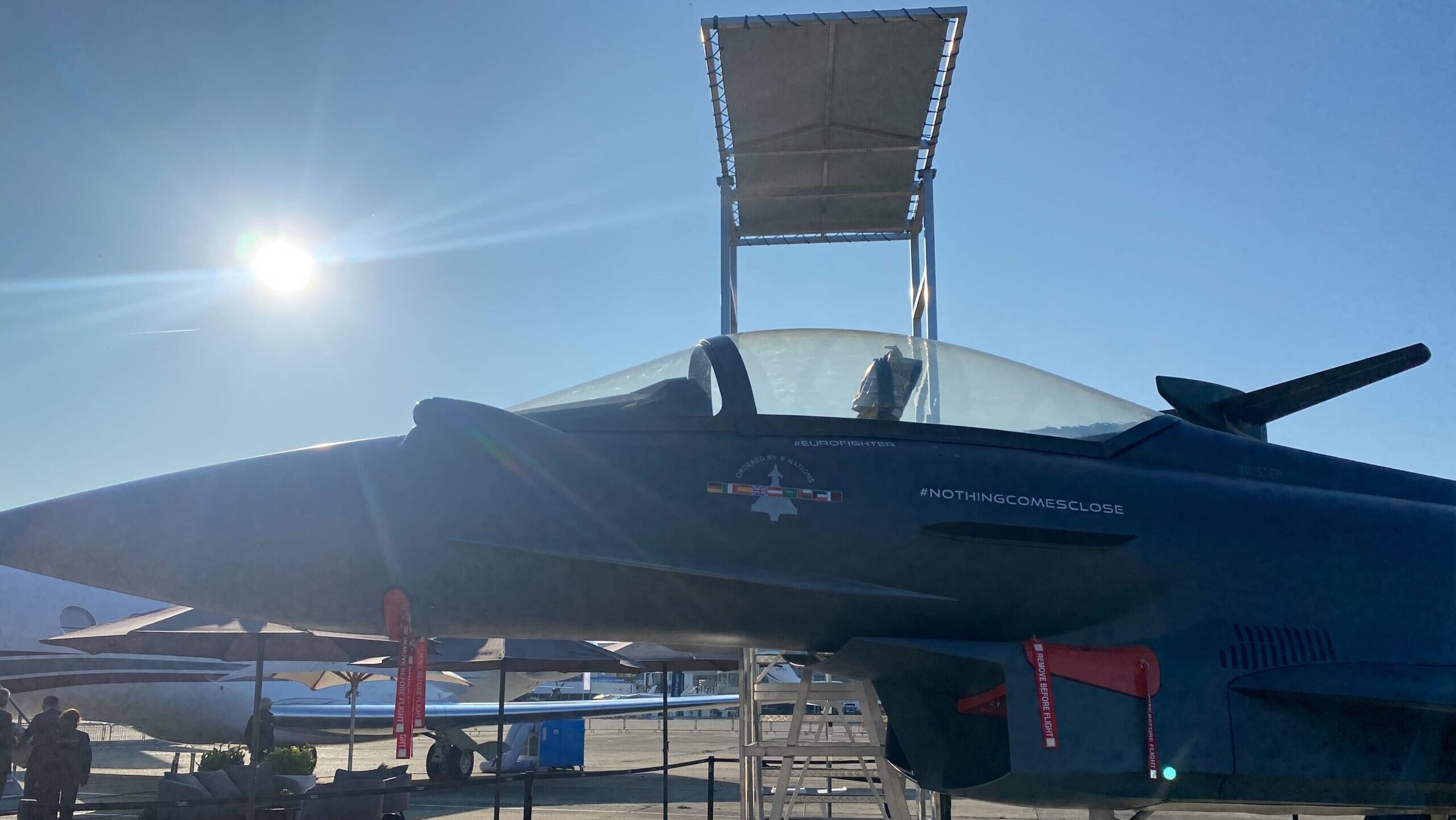World
Turkey Secures $10.66 Billion Deal for 20 Eurofighter Jets

Turkey has signed a significant agreement with the United Kingdom to purchase 20 Eurofighter Typhoon jets for approximately $10.66 billion. This deal, announced today, has been described by the UK Prime Minister’s office as “the biggest fighter jet exports deal in a generation.” British Prime Minister Keir Starmer emphasized that the agreement represents a substantial win for British workers, the defense industry, and NATO security.
The formal signing took place during a meeting between Starmer and Turkish President Recep Tayyip Erdoğan in Ankara, marking Starmer’s first official visit to Turkey. A video shared by Starmer on social media depicted him standing in front of the Eurofighter jets, symbolizing the importance of this partnership.
Strengthening Defense Ties
The recent agreement builds upon a Memorandum of Understanding (MoU) signed in July during the International Defense Industry Fair in Istanbul. This earlier agreement outlined plans for a total of 40 fourth-generation fighter jets. Negotiations for this deal have spanned over two years, largely due to concerns from Germany, a member of the Eurofighter consortium, regarding human rights and political tensions between Turkey and other NATO allies.
In November 2024, Turkish Defence Minister Yaşar Güler indicated that Germany had signaled its willingness to permit the sale to proceed. The Eurofighter consortium, which includes partners such as Airbus, BAE Systems, and Leonardo, is responsible for the production of these aircraft. The UK government highlighted that this sale not only represents a significant boost for the British defense sector but also saves the production line in Warton.
Starmer noted, “At either ends of Europe, the UK and Turkey are vital to tackling the challenges of our time and this will allow our Armed Forces to work even closer together as we deter threats and protect our national interests.”
Impact on NATO and Future Collaborations
This agreement is poised to enhance Turkey’s advanced combat capabilities while strengthening NATO’s presence in a strategically important region. The collaboration is expected to facilitate improved interoperability between the air forces of both nations. The Eurofighter consortium affirmed that this deal marks Turkey’s entry as a partner nation in the Eurofighter community, making it the tenth country to operate the Typhoon jets.
The consortium also noted that this partnership reinforces the Eurofighter program as a cornerstone of Europe’s air defense. Recent orders from Germany, Spain, and Italy have further established the Typhoon’s importance within NATO’s strategic framework.
In the wake of this agreement, Turkish officials revealed that Turkey is in discussions to acquire additional used Eurofighter jets from Oman and Qatar. This move is part of Turkey’s broader strategy to enhance its air fleet capabilities, particularly as it awaits the operational deployment of its domestically developed fifth-generation KAAN fighter jet.
Turkey’s ambition to procure advanced jets, including the Eurofighter Typhoon, reflects its intent to bolster its defense readiness and maintain a competitive edge in a rapidly changing geopolitical landscape.
-

 Lifestyle3 months ago
Lifestyle3 months agoLibraries Challenge Rising E-Book Costs Amid Growing Demand
-

 Sports3 months ago
Sports3 months agoTyreek Hill Responds to Tua Tagovailoa’s Comments on Team Dynamics
-

 Sports3 months ago
Sports3 months agoLiverpool Secures Agreement to Sign Young Striker Will Wright
-

 Lifestyle3 months ago
Lifestyle3 months agoSave Your Split Tomatoes: Expert Tips for Gardeners
-

 Lifestyle3 months ago
Lifestyle3 months agoPrincess Beatrice’s Daughter Athena Joins Siblings at London Parade
-

 World3 months ago
World3 months agoWinter Storms Lash New South Wales with Snow, Flood Risks
-

 Science3 months ago
Science3 months agoTrump Administration Moves to Repeal Key Climate Regulation
-

 Business3 months ago
Business3 months agoSoFi Technologies Shares Slip 2% Following Insider Stock Sale
-

 Science2 months ago
Science2 months agoSan Francisco Hosts Unique Contest to Identify “Performative Males”
-

 Science3 months ago
Science3 months agoNew Tool Reveals Link Between Horse Coat Condition and Parasites
-

 Sports3 months ago
Sports3 months agoElon Musk Sculpture Travels From Utah to Yosemite National Park
-

 Science3 months ago
Science3 months agoNew Study Confirms Humans Transported Stonehenge Bluestones









